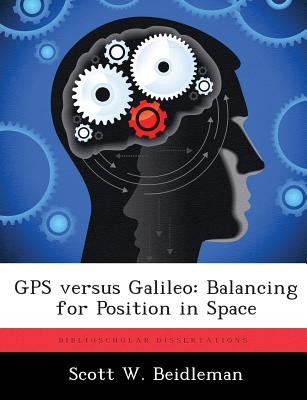
- We will send in 10–14 business days.
- Author: Scott W Beidleman
- Publisher: BiblioScholar
- ISBN-10: 1288306121
- ISBN-13: 9781288306121
- Format: 18.9 x 24.6 x 0.5 cm, softcover
- Language: English
- SAVE -10% with code: EXTRA
Reviews
Description
This study investigates Europe's motives to develop the independent satellite navigation system known as Galileo, despite the existence of America's successful Global Positioning System (GPS). The study begins by analyzing both systems to familiarize the reader with global navigation satellite systems (GNSS) and to provide an understanding of the strengths and weaknesses of GPS and Galileo, as well as the systems' similarities and differences. Although the two systems have different founding principles, they employ similar infrastructures and operational concepts. In the short term Galileo will provide better accuracy for civilian users until GPS upgrades take effect. But performance is only part of the rationale. The author contends that Europe's pursuit of Galileo is driven by a combination of reasons including performance, independence, and economic incentive. With Galileo, Europe hopes to achieve political, security, and technological independence from the US. Additionally, Europe envisions overcoming the US monopoly on GNSS by seizing a sizable share of the expanding GNSS market and setting a new world standard for satellite navigation. Finally, the author explores Galileo's impact on the US and reviews US policy towards Galileo. The study concludes with recommendations to strengthen the competitiveness of GPS.
EXTRA 10 % discount with code: EXTRA
The promotion ends in 17d.20:21:40
The discount code is valid when purchasing from 10 €. Discounts do not stack.
- Author: Scott W Beidleman
- Publisher: BiblioScholar
- ISBN-10: 1288306121
- ISBN-13: 9781288306121
- Format: 18.9 x 24.6 x 0.5 cm, softcover
- Language: English English
This study investigates Europe's motives to develop the independent satellite navigation system known as Galileo, despite the existence of America's successful Global Positioning System (GPS). The study begins by analyzing both systems to familiarize the reader with global navigation satellite systems (GNSS) and to provide an understanding of the strengths and weaknesses of GPS and Galileo, as well as the systems' similarities and differences. Although the two systems have different founding principles, they employ similar infrastructures and operational concepts. In the short term Galileo will provide better accuracy for civilian users until GPS upgrades take effect. But performance is only part of the rationale. The author contends that Europe's pursuit of Galileo is driven by a combination of reasons including performance, independence, and economic incentive. With Galileo, Europe hopes to achieve political, security, and technological independence from the US. Additionally, Europe envisions overcoming the US monopoly on GNSS by seizing a sizable share of the expanding GNSS market and setting a new world standard for satellite navigation. Finally, the author explores Galileo's impact on the US and reviews US policy towards Galileo. The study concludes with recommendations to strengthen the competitiveness of GPS.


Reviews